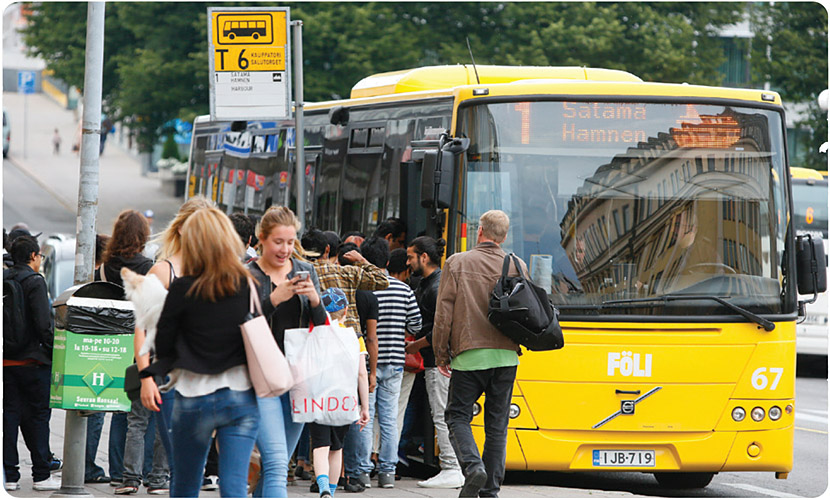By Annika Kunnasvirta, Local Evaluation Manager, CIVITAS ECCENTRIC, Turku University of Applied Sciences
Decarbonizing mobility lies at the heart of efforts to mitigate climate change in urban areas. This looms in the vicinity for the city of Turku in Finland, aiming to become carbon neutral by year 2029. To reach this goal, a broad range of measures to decarbonize transport is naturally needed. Various policies are already at place in the city to promote the fulfillment of the goal, as well as concrete actions and strategies.
The CIVITAS ECCENTRIC project approached mobility decarbonization from various angles. In Turku, the focus ranged from stakeholder integration on regional and local level to practical measures such as improved winter maintenance of bicycle routes, the launch of electric buses and implementing a bike share system. The project also addressed Mobility as a Service development on local and international level and created a tool for monitoring this process, the MaaS Readiness Level Index, which has already been applied by cities worldwide.
Decarbonization of public transport took huge steps in Turku when as part of CIVITAS ECCENTRIC, a pilot project was started with the goal of having six electric buses operating between the Turku airport and the ferry terminal, becoming the first Finnish city to use electric vehicles on an entire line of public transport. Despite some technical issues experienced, the Turku e-buses have already proven competitive compared to traditional diesel buses from an energy efficiency point of view, even the more energy efficient EURO VI models.
Now when talking about project success, one often thinks about concrete results – modal share changes, infrastructure improvements, methods developed. These are of course important. What is often left for lesser attention, however, are the process learnings brought about by projects that are immensely valuable for planning future mobility interventions. Therefore, beyond the concrete measure results, it is important to highlight the importance of the process towards system level change facilitated by projects, and their subsequent impacts on decarbonization. This is often overlooked, most likely due to the fact that it is difficult to showcase.
In Turku, the process level learnings from each individual measure were thoroughly analyzed, focusing particularly on the specific barriers and drivers of mobility decarbonization measures. It was found, for instance, that the political driver of the commitment of key actors to promote electrification of public transport was a major driver for the pilot project in Turku. The goal to electrify bus line no.1 was largely supported politically and larger scale electrification of public transport is part of the city’s climate objectives. This kind of support is crucial when implementing a system based on a novel technology as in such endeavors there are bound to be some setbacks and failures – technological barriers – possibly leading to apparent inefficiency of the system at times and higher upfront costs. In Turku, the political commitment of key actors to promote electrification of public transport was of essence for attaining trust in the longer-term functioning of the system despite initial these setbacks.
In essence, this is what decarbonizing mobility really requires: goals, strategies, concrete actions and a thorough evaluation of these actions to assess not only direct impacts but also process learnings. The carbonfree mobility system of the future relies on these both.
